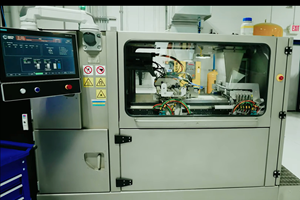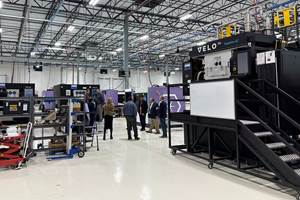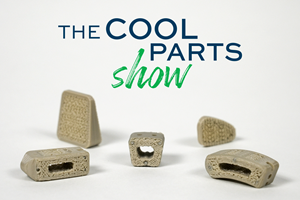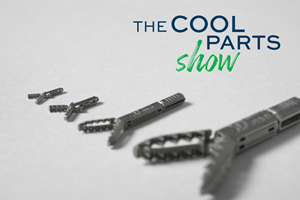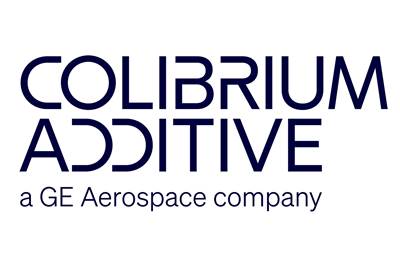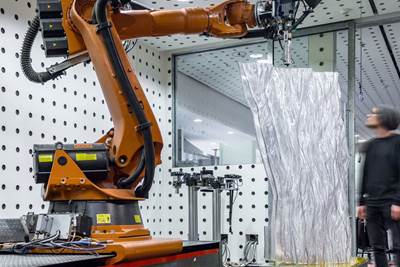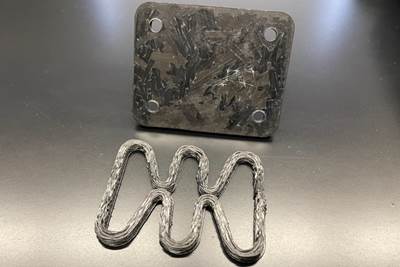Materialise Opens Medical 3D Printing Facility
At the new facility in Plymouth, Michigan, Materialise specializes in the 3D printing of personalized titanium cranio-maxillofacial (CMF) implants for more patient-specific care.
Materialise is working to accelerate the delivery of patient-specific medical implants to patients in the United States with the opening of a new 3D printing facility in Plymouth, Michigan. Surgeons are increasingly embracing 3D printing solutions as they recognize the added value it brings to personalized patient care, including more predictable and accurate surgical outcomes, and time savings during surgery.
At the new facility in Plymouth, Michigan, Materialise specializes in the 3D printing of personalized titanium cranio-maxillofacial (CMF) implants. CMF implants are used for facial reconstructive surgery. Until now, Materialise manufactured titanium CMF implants solely at its 3D printing facility in Belgium. With a dedicated metal 3D printing facility in the U.S., the company can respond to surgeons’ needs with greater reliability while significantly reducing the delivery time of fully personalized implants to hospitals across the U.S. This expansion of capabilities complements Materialise’s existing production of 3D printed surgical guides and anatomical models in the United States.
“With the opening of our new metal 3D printing center in the U.S., we bring personalized care closer to U.S. patients,” says Brigitte de Vet, vice president of medical at Materialise. “The power of 3D printing paired with our three decades of experience in 3D planning and medical manufacturing, allows us to accelerate the delivery of personalized medical implants. We take pride in leading the charge to revolutionize patient-specific care and with our dedicated facility in Michigan we further enhance personalized care in the United States."
The advent of technologies such as 3D printing and advanced visualization techniques has transformed personalized patient care. Patient-specific 3D printed medical solutions include anatomical models for diagnostic purposes, and surgical guides and implants to enhance accuracy and efficiency. These solutions are designed to bolster surgeons’ comfort before and during surgery, leading to more predictable and accurate surgical outcomes. As a result, surgeons increasingly adopt 3D printing as part of their medical practices to bring personalized care closer to patients and to reduce overall costs.
Materialise has more than three decades of experience in developing medical solutions and offers a comprehensive range of 3D printed guides and implants. The company produces 280,000 personalized 3D printed instruments and implants per year, including 160,000 for the U.S. market.
The company says it has pioneered numerous groundbreaking medical 3D printing applications. In 2017, it introduced one of the first personalized CMF implant portfolios in the U.S. In 2021, its 3D planning and 3D printed instruments played a pivotal role in the world’s first simultaneous double hand and face transplant that was successfully performed at NYU Langone Health in Manhattan, New York.
- Read about EOS’ adoption of Materialise CO-AM Software Platform to improve internal additive manufacturing efficiency. The CO-AM platform is designed to enhance traceability and connectivity in the company’s internal additive manufacturing processes.
- Learn how GKN Aerospace and Materialise are partnering to propel additive manufacturing in aviation. Materialise supported the delivery of the additively manufactured wing tip for Eviation’s Alice, the world's largest all-electric aircraft, which made its maiden flight in 2022.
- Find out how Materialise’s surgical guides illustrate the promise of mass customization. The company’s interconnected software systems enable production via additive manufacturing of a product tailored to individual surgeries.
Related Content
From Polymer Tooling to Metal Production Via 3D Printing
As Azoth has adopted new additive manufacturing technologies, its work has transitioned from tooling to production parts for automotive, medical and defense.
Read MoreZeda AM Production Plant in Ohio Now Open — Thoughts on the New Facility
73,000-square-foot metal powder bed fusion plant includes extensive machining capability plus separate operational models for serving medical versus other businesses.
Read MoreFDA-Approved Spine Implant Made with PEEK: The Cool Parts Show #63
Curiteva now manufactures these cervical spine implants using an unusual 3D printing method: fused strand deposition. Learn how the process works and why it’s a good pairing with PEEK in this episode of The Cool Parts Show.
Read MoreMicro Robot Gripper 3D Printed All at Once, No Assembly Required: The Cool Parts Show #59
Fine control over laser powder bed fusion achieves precise spacing between adjoining moving surfaces. The Cool Parts Show looks at micro 3D printing of metal for moving components made in one piece.
Read MoreRead Next
GE Additive Rebrands as Colibrium Additive
As part of the brand name transition, both the Concept Laser and Arcam EBM legacy brands will be retired.
Read More3D Printing Brings Sustainability, Accessibility to Glass Manufacturing
Australian startup Maple Glass Printing has developed a process for extruding glass into artwork, lab implements and architectural elements. Along the way, the company has also found more efficient ways of recycling this material.
Read MoreTo Improve Performance of Compression Molded Composites, Add 3D Printed Preforms
9T Labs' Additive Fusion Technology enables the manufacture of composite structures with as much or as little reinforcement as is necessary, using 3D printed continuous fiber preforms to add strength just where needed.
Read More



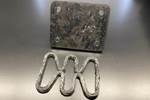
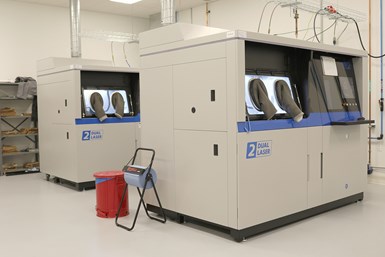



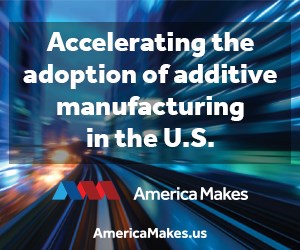

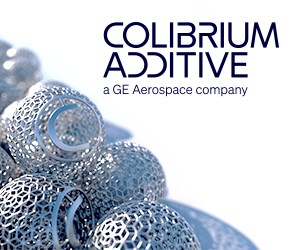



.png;maxWidth=300;quality=90)


